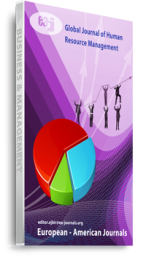This study aimed to determine how adopting e-HRM solutions may affect non-financial organizational performance. The study was quantitatively founded on cross-sectional research. The study’s population comprised employees, middle management, top management, and human resources specialists from multinational corporations. The targeted population was 488 employees from three multinational companies that have adapted e-HRM tools for their operations. Yamane’s sample size formula was used to determine a sample size of 219. The questionnaire was self-administered, and that contributed to the high return rate of 98%. The questionnaire was constructed in a Likert-scale style. The respondents were chosen using a systematic random sampling technique. The SPSS (Version 23) and SEM-PLS were used for data analysis. The strengths of SEM-PLS include its statistical power, robustness in the face of small sample sizes, general acceptability in social scientific research, and non-linearity of data handling. The results of this study showed a statistically significant correlation between e-HRM tools and non-financial organizational performance. It was suggested that the management of business enterprises should invest in and implement e-HRM tools to facilitate HR professionals’ and line managers’ functions and that the evaluation of organizational performance should not be based on financial indicators only but must incorporate financial and non-financial perspectives in a longitudinal study that incorporates many developing countries
Keywords: Ghana, electronic human resource management (e-HRM), multinational companies, non-financial organisational performance

